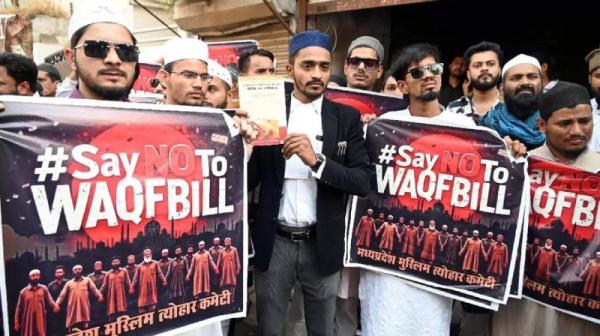
The Waqf (Amendment) Bill was passed earlier this month after extensive debate in both Lok Sabha and Rajya Sabha.
Waqf Amendment Act: Supreme Court to Hear Today News in Hindi: The Supreme Court will hear a series of petitions challenging the recently revised Waqf Act, which controls the administration of Muslim charitable assets.
The bench of three judges of India's Chief Justice Sanjeev Khanna, Justice Sanjay Kumar and Justice KV Vishwanathan will hear the matter at 2 pm.
Six BJP ruled states – Madhya Pradesh, Rajasthan, Chhattisgarh, Assam, Maharashtra and Uttarakhand – have filed applications to participate in the proceedings in defense of the revised law.
The Waqf (Amendment) Bill was passed earlier this month after extensive debate in both Lok Sabha and Rajya Sabha.
Although the Supreme Court had earlier stated that it would not intervene in legislative cases, it has agreed to investigate the constitutional validity of the law after the petitions, alleging that it violates fundamental rights, including right to equality and right to follow religion.
This law is being challenged by leaders of opposition parties like Congress, Janata Dal (United), Aam Aadmi Party, DMK and CPI.
Religious groups and civil society organizations including Jamiat Ulema-e-Hind and All India Muslim Personal Law Board have also filed petitions against it.
Critics of the law argue that it is arbitrary, unconstitutional and discriminatory against Muslims. Some people have demanded to completely cancel it, while others are demanding a ban on its implementation. AIMIM leader Asaduddin Owaisi claimed in his petition that the amendment weakens the current security for Waqf properties, while security for other religious communities has been maintained – an act that he described as discriminatory.
AAP leader Amanatullah Khan has challenged the inclusion of non-Muslims in Waqf boards, saying that it violates Article 14 of the Constitution and has no logical relations for the purpose of management of religious assets.
However, the central government has defended the amendment and argued that it is a reform to property, not a religious matter. This has cited extensive irregularities in managing Waqf properties and claimed that income often fails to benefit the disadvantaged Muslims, women and children – the aim of the new law is issues that are to be addressed.
The government also said that the bill has been prepared after extensive deliberations and has the support of many non-Muslim minorities. The bill has been passed after a review of the Joint Parliamentary Committee and includes amendments suggested by several members.
Despite the assurance of the government, protests are taking place against this law in various parts of the country. The most violent demonstration took place in West Bengal, where three people died and many people were displaced. Chief Minister Mamata Banerjee has since announced that her government will not implement the revised law.